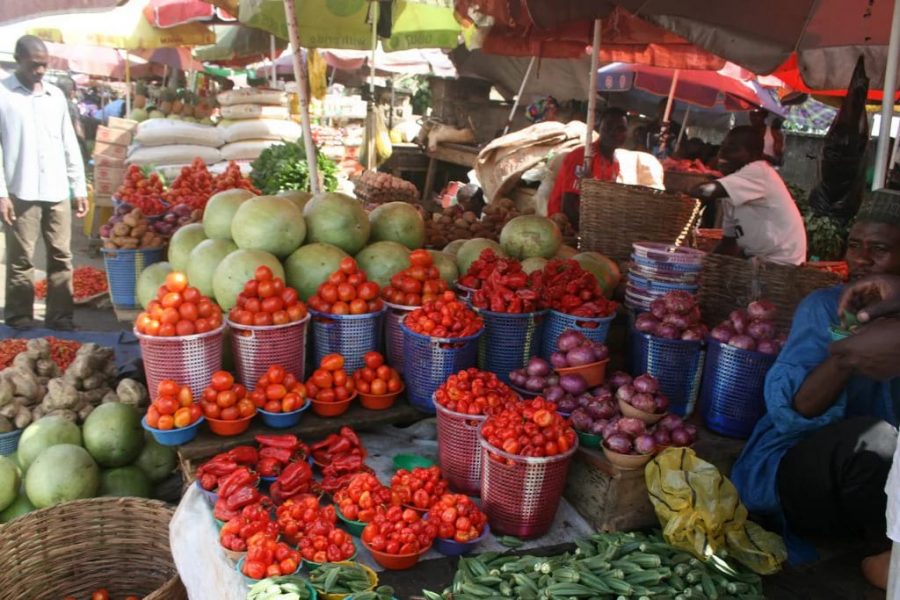As Nairametrics reported yesterday, the National Bureau of Statistics (NBS) released its consumer price index which revealed that Nigeria’s inflation rate dropped to 11.22% last month.
According to the NBS, virtually all the indicators were positive. In other words, headline inflation, core, food, urban and rural inflation all improved considerably, even as there was a 0.18% point drop, compared to May’s 11.40% inflation rate.
Quick Stat: Nigeria’s inflation rate drops to 11 Months low in June 2019
Year – 2018
August–11.23%
September–11.28%
October–11.26%
November–11.28%
December–11.44%Year – 2019
January–11.37%
February–11.31%
March–11.25%
April–11.37%
May–11.40%
June-11.22%Source: @nigerianstat
— Nairalytics (@Nairalyticsdata) July 15, 2019
A lukewarm Response: This development ought to have elicited some rejoicing under normal circumstances but there was virtually none. The reason for this is not far-fetched — millions of Nigerians aren’t feeling the so-called inflation rate drop.
What the people said: According to a procurement officer in one of Fast Moving Consumer Goods companies who spoke to Nairametrics on a condition of anonymity, the reported drop is supposedly not reflective of the economic realities in the country. She wondered how there could have been a drop in food and other inflation indicators and yet millions of Nigerians remain mostly impoverished, struggling to meet their basic needs on a daily basis.
“I mean, it doesn’t just make sense. I don’t just want to say this report is either fabricated or doctored because that would be disrespectful to the people at the NBS. Yet, I can’t help but fault it. It’s just too good on paper and non-reflective of the economic realities on ground. Now, that’s just my perspective…”
Another person who spoke to Nairametrics’ Head of Research also questioned the authenticity of the inflation report. He specifically wondered how possible it was for a 0.18 point drop to have occurred within the space of a month.
[READ: Survey reveals Nigerian businesses expect positive outlook for job creation]
Meanwhile, over there on Twitter, many Nigerians also questioned the inflation report. Channel TV’s Baoson Omofaye even had to call out Naija Twitter people for “not liking good news”. Well, let’s just say some of them had a lot to say to him in response.
The stats does not reflect the realities of the common man. It is no news.
— emeka irokoh (@eorjim) July 15, 2019
Exactly my thought. The stats could be all green, but people don't care until they see it real in their daily living.
— Omoakin (@oluomo1st) July 15, 2019
In all sincerity, the Nigerian economic situation calls for a sober reflection. It is a situation that should really bother any well-meaning Nigerian. While this article isn’t intended to discredit any report, it will be good if we can get to a time in this country when macroeconomic indicators would not have to be disputed on the grounds of them not reflecting the condition of the average Nigerian in the street.
[READ FURTHER: This report makes a case for dumping stocks in this sector]












The sad reality of Nigeria. When inflation is 15% we will feel it but when it has dropped to 11% we will not feel it. The reason is simple- We only measure by feelings and not be data as the NBS does. What we should track is how much it cost us to buy the same things one or 2 months apart. If that amount is stable then why should you question the data? Inflation rate dropping doesn’t mean food prices will drop significantly because the Nigerian business owner doesn’t know how to drop prices. Even if inflation becomes a single digit before the end of the year most people still won’t feel it except when the drop comes from the manufacturers and wholesalers then it can trickle down to the SMEs
This suggests that the inflation in Nigeria is a demand pull inflation (especially considering how low we are in productivity): purchasing power has generally reduced thus reversing the inflation that was the result of an increase in demand.